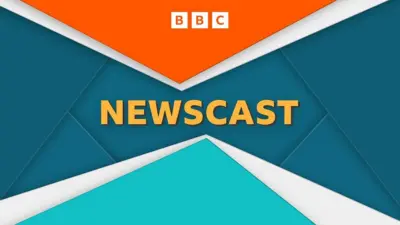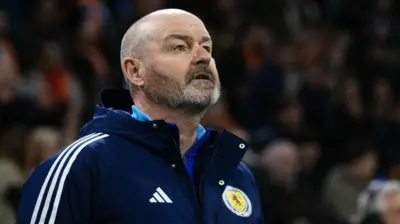We've updated our Privacy and Cookies Policy
We've made some important changes to our Privacy and Cookies Policy and we want you to know what this means for you and your data.
Sky launches streaming TV with no satellite dish
- By Jane Wakefield
- Technology reporter
Image source, Sky
British broadcaster Sky is launching a TV that streams content via the internet, removing the need for a satellite dish.
The company describes Sky Glass as a "no-fuss" streaming TV.
One expert said it would put the broadcaster in direct competition with TV makers such as Samsung and Sony.
Another said while ditching the "outdated satellite dish" was long overdue, it was "an expensive way to watch TV".
Sky Glass eliminates the need for an external box - and with built-in Dolby Atmos, there is no need for a sound bar either.
Other specs include:
- three versions - 43in, 55in and 65in
- a single wire and just one plug
- 4K ultra-high-definition quantum-dot screen
- 10-bit high dynamic range to support Dolby Vision HDR
- voice-activated interface
- available in five colours
"Sky Glass is the streaming TV with Sky inside, providing the total integration of hardware, software and content," group chief executive Dana Strong said.
"We believe this is the smartest TV available."
Although it will require a Sky subscription, content from BBC iPlayer, Amazon, Netflix, Disney+, ITV Hub and All4 will also be available.
Sky has not yet named the hardware partner who will make the device.
It has also not explained how exactly it plans to stream its content over the web, without delays or buffering.
If someone wishes to cancel their Sky subscription after purchasing the TV, they will still be able to use the TV but will lose some of the more advanced features, such as voice control and playlists.
'Extremely lucrative'
While the move to deliver content over the internet rather than via satellite would bring "its own challenges", Sky's decision made a lot of business sense, independent technology analyst Paolo Pescatore said.
"By not having a satellite dish, you lower costs and increase margins," he said.
"Providing your own TV set and persuading people to sign up for a subscription, that is extremely lucrative for Sky."
Image source, Sky
In future, Sky may offer discounts on the TV with its broadband offerings too, he said.
Sky already offers TV via broadband in Italy, and Germany, via its Sky Q set-top box.
This bolder move into hardware would also put it in direct competition with TV-makers such as Samsung and Sony, who bundle Sky content with their devices, Mr Pescatore said, and hasten "the demise of the set-top box".
The TV can either be paid for as part of an existing subscription or bought outright.
Users who already have a £26 Sky Ultimate TV subscription will pay £13 extra per month for the smallest TV. The 55in screen will be £17 and the 65in £21.
Buying the smallest version of the TV upfront will cost £649 and will need an additional subscription to Sky. The larger versions will be £849 and £1,049 respectively.
Magic dust
That made it "an expensive way to watch TV," Ernest Doku, of Uswitch, said.
But he added the market was due a shake-up.
"It's about time that Sky sprinkled some magic dust over the outdated satellite dish," Mr Doku said.
"This all-in-one solution finally does away with the set-top box and dish, which historically have put off many potential customers."
Sky also claimed the Glass would be the world's first carbon-neutral TV.
Mr Doku said details about how it would achieve that "were thin on the ground" but added: "Encouraging consumers to get rid of working televisions in order to get Sky's version could generate a lot of unnecessary electronic waste."
The TV is available from 18 October in the UK, and in other markets next year.
Top Stories
Features & Analysis
Most read
Content is not available








